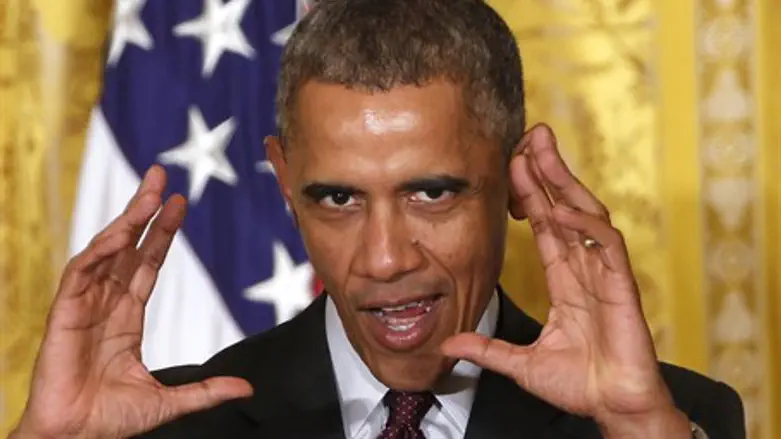
The US imposed new sanctions on Iran's ballistic missile program on Sunday, even as the international nuclear sanctions were lifted on Tehran following the controversial deal sealed last summer.
US President Barack Obama welcomed the lifting of the sanctions, saying, "this is a good day because once again we're seeing what's possible with international diplomacy."
"For decades, our differences meant our governments hardly ever spoke - ultimately, that did not advance our interests," he said, claiming that the deal with the leading state sponsor of terrorism means "Iran will not get its hands on a nuclear bomb."
That assessment has been thrown in heavy doubt given the fact that Iran will be allowed to inspect its own covert nuclear sites such as Parchin, and Iran likewise can simply wait for the limitations on its nuclear program to expire under the deal in 15 years.
The sanctions were lifted after the International Atomic Energy Agency (IAEA) said Iran met its obligations in the deal. The IAEA's announcement came just hours after a breakthrough prisoner swap with the US saw four American citizens freed in return for the release of seven Iranians jailed in the US - an American Jewish prisoner remains under captivity.
Israel’s UN ambassador Danny Danon warned Saturday night that "Iran is continuing to strive for nuclear weapons and the optimism of the IAEA report must not blind the international community."
On Sunday, Republican presidential candidate Ted Cruz promised he would rip up the Iran nuclear deal on his first day in office.
Ballistic missile sanctions
New American missile sanctions imposed on Sunday targeted 11 entities and individuals connected to the Iranian missile program, and ban them from using the US banking system.
"Iran's ballistic missile program poses a significant threat to regional and global security, and it will continue to be subject to international sanctions," said US acting under-secretary for terrorism and financial intelligence Adam J Szubin.
The sanctions come after Iran conducted an Emad ballistic missile test on October 10, and a month later it tested another ballistic missile, with US officials revealing other undeclared tests occurred earlier than that.
UN sanctions monitors confirmed in a report that the medium-range Emad rocket tested on October 10 is capable of carrying a nuclear warhead, making it a violation of a UN Security Council resolution.
Iran has since further flouted expectations from the deal, by earlier this month publicly revealing its 14 underground "missile towns," with the latest facility being shown on Iran media as convoys of the nuclear-capable Emad missiles were transferred in.
In response to the missile tests, Obama in late December threatened to implement new sanctions on Iran's rocket program. A day later Iranian President Hassan Rouhani threatened that Tehran would accelerate the development of its arsenal, and a day after that Obama backed down and delayed the new sanctions.
